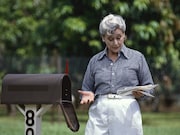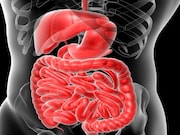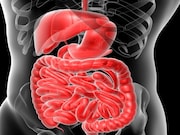Tag: Cancer: Colon
Rate of Ordering Cancer Screening Tests Decreases During Clinic Day
Rate of patient completion of cancer screening tests also decreases with appointment later in the day
Oral Aspirin Does Not Up FIT Test Sensitivity for ID’ing CRC
Sensitivity not significantly increased in aspirin versus placebo group at two cutoffs
Cardiorespiratory Fitness Tied to Lower Risk for Lung Cancer, CRC
For those diagnosed with lung cancer, CRC, higher CRF tied to lower risk for subsequent death
Financial Incentives Do Not Boost Use of At-Home CRC Screening Tests
$10 incentives used in the study may have been too small to garner a response
Colorectal Neoplasia Risk Up for Hodgkin Lymphoma Survivors
Prevalence higher for advanced adenomas, advanced serrated lesions, serrated polyposis syndrome
Starting Colorectal Cancer Screening at Age 45 Years Is Cost-Effective
But increasing participation for unscreened older adults would yield greater benefits at lower costs
ASCO: Guidelines Released for Early Detection, Treatment of CRC
Stratified guidelines emphasize optimal detection methods and treatments of colorectal cancer
Distinct Etiology Found for Colorectal Cancer With Early Onset
Patients aged 18 to 29 with early-onset colorectal cancer more likely to have signet ring histology
Young-Onset Colorectal Cancer May Often Be Misdiagnosed
Most patients are diagnosed at advanced stages of disease, report waiting months before seeing doctor
Single-Application FIT Moderately Sensitive, Specific for CRC
Performance characteristics vary depending on the threshold for a positive result














